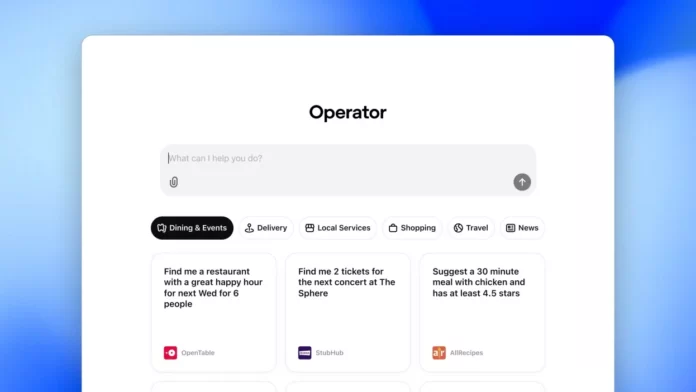OpenAI introduced “Operator,” an AI agent capable of performing tasks on the web, as it seeks to enhance its offerings amid rising competition.
The tool, available to Pro users in the U.S. as a research preview, enables interactions with on-screen buttons, menus, and text fields, allowing it to complete tasks like creating to-do lists and assisting with vacation planning.
Operator also takes user input once tasks are completed, seeking confirmation for sensitive actions like entering login credentials on websites. OpenAI described the tool as a step forward in AI development, highlighting its potential to use tools relied upon by humans daily and enabling new applications.
Agents, which can independently execute tasks such as scheduling meetings and making purchases, are a growing focus in AI. Earlier on Thursday, OpenAI competitor Perplexity launched a similar agent-based assistant for Android devices. This assistant can perform tasks like booking dinner reservations, hailing rides, and setting reminders.
Apple has also entered the AI space, incorporating Apple Intelligence into its Siri assistant last year. In partnership with OpenAI, Apple introduced ChatGPT capabilities to its systems with user consent.
According to business executives, advances in reasoning methods, such as OpenAI’s o1 model, are making these agent-based systems feasible, bridging long-standing gaps in AI capabilities.




